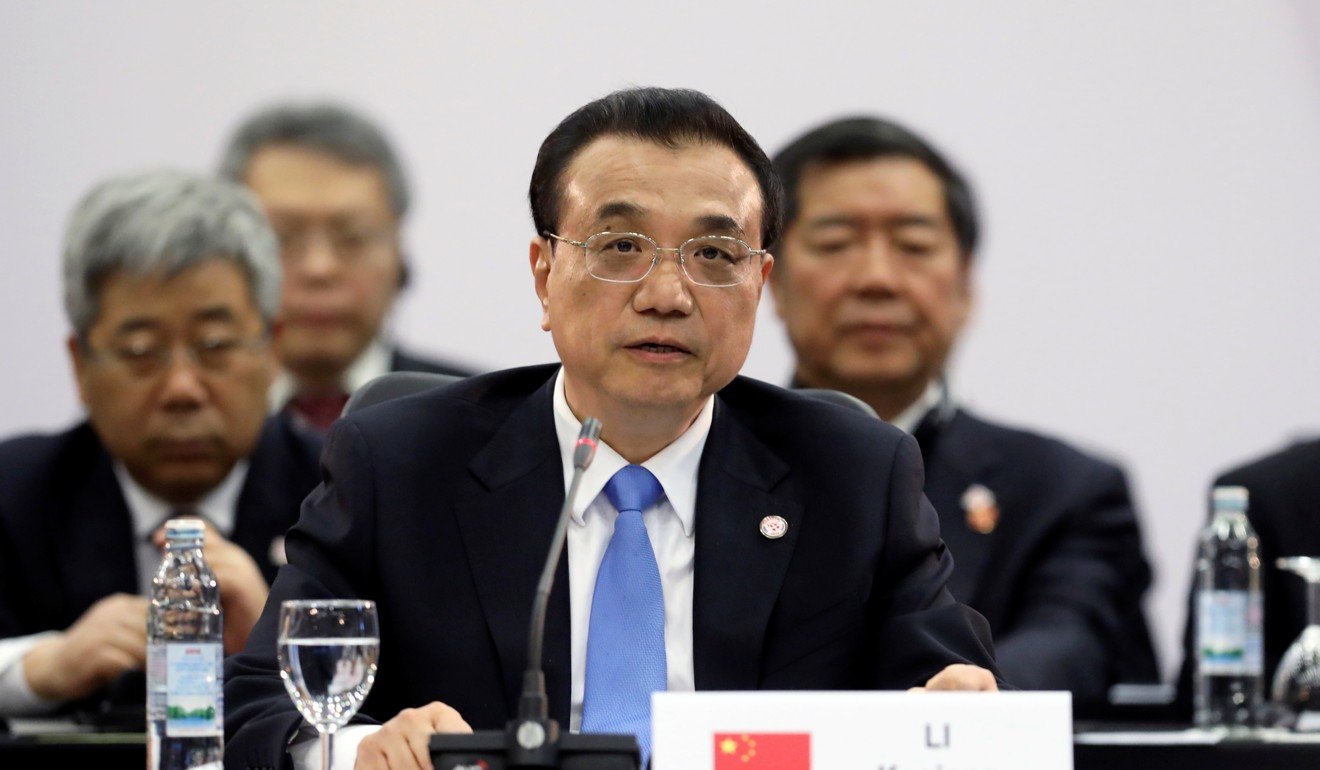
China says it respects EU laws and standards as 16+1 becomes 17+1 with new member Greece
- Premier Li Keqiang says growing platform is an important ‘supplement’ to Beijing’s relationship with the European Union
- Joint statement includes list of nearly 40 deals signed between China and partner countries on agricultural exports, e-commerce and technology
China pledged to respect EU rules and standards as the summit with Central and Eastern European countries concluded on Friday, with Premier Li Keqiang praising Greece for officially joining the group – making it “17+1”.
Li said the growing platform was an important “supplement” to Beijing’s relationship with the European Union, on the heels of the EU-China summit in Brussels on Tuesday. The EU is China’s largest trading partner, with both sides trading more than €1.5 billion (US$1.9 million) worth of goods every day.
Speaking at the end of the summit in Dubrovnic, Croatia, the Chinese premier said he hoped the cooperation would help deepen Beijing’s relationship with the 28-member bloc.
“We respect the EU’s laws and standards,” Li said. “We all need to increase trade and connect our economies.”

In a joint statement, the two sides lent support to EU initiatives including the EU-China Comprehensive Investment Agreement, which Brussels and Beijing on Tuesday committed to complete before the end of 2020, in time for the next EU-China summit.
It also emphasised the need for a “level playing field” – a key demand by the 16+1 countries in their negotiations with China.
The statement included a list of nearly 40 deals signed between China and the partner countries covering areas such as agricultural exports, e-commerce, finance and technology cooperation.
EU calls out Beijing on human rights but activists want harder line
It also contained references to new principles that did not appear in last year’s statement, including the “three pillars of the United Nations” – peace and security, human rights and development.
The China-led 16+1 platform held its first summit in Warsaw, Poland, in 2012. Greece is the first new member to join the group, which now comprises 12 EU member states and five Balkan nations that are also slated to join the EU in the future.
Greek Prime Minister Alexis Tsipras, who flew in from Athens on Friday morning, addressed the meeting’s plenary session and expressed strong hope that Greece would play a role in the new framework.

“I look forward to working with all of you in this framework of this initiative, in full respect of the rules and procedures of the European Union, to promote economic co-development through this very effective platform of cooperation with China,” Tsipras said.
“I think this is a very crucial moment for global and regional development. We have to leave behind the crisis, and we have to find a new foundation for our cooperation at a regional and global level,” the Greek leader said in an apparent reference to the 2008 global financial crisis and the European debt crisis that followed.
He also praised Cosco, a Chinese state-owned shipping and logistics company, for investing in the Greek port of Pireaus, and Athens’ cooperation with Beijing via its “Belt and Road Initiative”.
Speaking during the plenary session, several heads of state welcomed Greece as a member of the group.
“Slovenia believes that the full membership of Greece will lead to an even wider perspective,” said Marjan Šarec, the country’s prime minister.
There has been growing concern that trade deficits with China have been expanding since the platform started in 2012.
In his opening remarks, Croatian Prime Minister Andrej Plenkovic said: “All of us around this table are looking at new modalities of how to better integrate the economies of the two sides and generate more job opportunities,” though he added that “the numbers can always be better”.
Several major EU economies, including France and Germany, have expressed concern that China’s influence on the region’s smaller countries would divide Europe. Last year, the European Union was concerned after the 16+1 meeting was held in Sofia, Bulgaria, ahead of the EU-China summit. This year, the meeting in Brussels preceded the 16+1 summit.
“I can see a real effort to make the China-Central and Eastern Europe cooperation complementary to the EU dialogue, reducing the existing overlaps,” said Jakub Jakóbowski, a researcher at the Centre for Eastern Studies in Poland.
Jakóbowski said the joint statement showed a clear intention to funnel important issues – such as trade negotiations, connectivity, customs and others – through Brussels.
“China apparently backed away from the most controversial issues of financing, not presenting any new mechanisms and inviting EU financial institutions to the existing ones,” Jakóbowski said.

